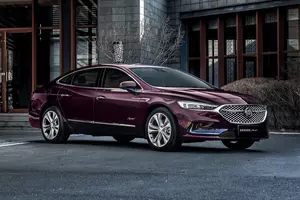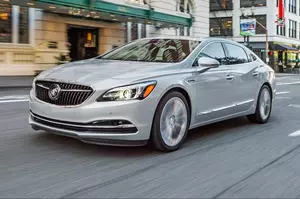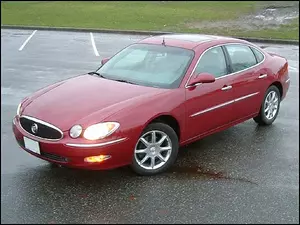
| Vehicle | Precise engine size | Difference from world average | Engine size to consumption ratio | Horsepower from 1 L | Engine size to 100 kg of weight |
|---|---|---|---|---|---|
| 28T 2.0 |
2 L (1998 cc) |
14.8% smaller | 59 cc to 1 mpg | 120 hp from 1 L | 125 cc to 100 kg |
| Vehicle | 28T 2.0 |
|---|---|
| Precise engine size | 2 L (1998 cc) |
| Difference from world average | 14.8 smaller |
| Engine size to consumption ratio | 59 cc to 1 mpg |
| Horsepower from 1 L | 120 hp from 1 L |
| Engine size to 100 kg of weight | 125 cc to 100 kg |

| Vehicle | Precise engine size | Difference from world average | Engine size to consumption ratio | Horsepower from 1 L | Engine size to 100 kg of weight |
|---|---|---|---|---|---|
| 2.5 |
2.5 L (2500 cc) |
6.6% bigger | - | 78 hp from 1 L | - |
| 3.6 V6 |
3.65 L (3649 cc) |
55.5% bigger | - | 85 hp from 1 L | - |
| Vehicle | 2.5 |
|---|---|
| Precise engine size | 2.5 L (2500 cc) |
| Difference from world average | 6.6 bigger |
| Engine size to consumption ratio | - |
| Horsepower from 1 L | 78 hp from 1 L |
| Engine size to 100 kg of weight | - |
| Vehicle | 3.6 V6 |
| Precise engine size | 3.65 L (3649 cc) |
| Difference from world average | 55.5 bigger |
| Engine size to consumption ratio | - |
| Horsepower from 1 L | 85 hp from 1 L |
| Engine size to 100 kg of weight | - |

| Vehicle | Precise engine size | Difference from world average | Engine size to consumption ratio | Horsepower from 1 L | Engine size to 100 kg of weight |
|---|---|---|---|---|---|
| 30H |
1.8 L (1796 cc) |
23.4% smaller | 36 cc to 1 mpg | 46 hp from 1 L | 112 cc to 100 kg |
| 20T |
1.49 L (1490 cc) |
36.5% smaller | 39 cc to 1 mpg | 114 hp from 1 L | 99 cc to 100 kg |
| Avenir 28T |
2 L (1998 cc) |
14.8% smaller | 64 cc to 1 mpg | 131 hp from 1 L | 125 cc to 100 kg |
| 28T |
2 L (1998 cc) |
14.8% smaller | 64 cc to 1 mpg | 131 hp from 1 L | 125 cc to 100 kg |
| Vehicle | 30H |
|---|---|
| Precise engine size | 1.8 L (1796 cc) |
| Difference from world average | 23.4 smaller |
| Engine size to consumption ratio | 36 cc to 1 mpg |
| Horsepower from 1 L | 46 hp from 1 L |
| Engine size to 100 kg of weight | 112 cc to 100 kg |
| Vehicle | 20T |
| Precise engine size | 1.49 L (1490 cc) |
| Difference from world average | 36.5 smaller |
| Engine size to consumption ratio | 39 cc to 1 mpg |
| Horsepower from 1 L | 114 hp from 1 L |
| Engine size to 100 kg of weight | 99 cc to 100 kg |
| Vehicle | Avenir 28T |
| Precise engine size | 2 L (1998 cc) |
| Difference from world average | 14.8 smaller |
| Engine size to consumption ratio | 64 cc to 1 mpg |
| Horsepower from 1 L | 131 hp from 1 L |
| Engine size to 100 kg of weight | 125 cc to 100 kg |
| Vehicle | 28T |
| Precise engine size | 2 L (1998 cc) |
| Difference from world average | 14.8 smaller |
| Engine size to consumption ratio | 64 cc to 1 mpg |
| Horsepower from 1 L | 131 hp from 1 L |
| Engine size to 100 kg of weight | 125 cc to 100 kg |

| Vehicle | Precise engine size | Difference from world average | Engine size to consumption ratio | Horsepower from 1 L | Engine size to 100 kg of weight |
|---|---|---|---|---|---|
| 3.6 i V6 24V |
3.56 L (3564 cc) |
51.9% bigger | 162 cc to 1 mpg | 67 hp from 1 L | 223 cc to 100 kg |
| 3.8 i V6 |
3.79 L (3791 cc) |
61.6% bigger | 165 cc to 1 mpg | 54 hp from 1 L | 237 cc to 100 kg |
| 5.3i V8 16V AFM |
5.33 L (5327 cc) |
127.1% bigger | - | 56 hp from 1 L | - |
| Vehicle | 3.6 i V6 24V |
|---|---|
| Precise engine size | 3.56 L (3564 cc) |
| Difference from world average | 51.9 bigger |
| Engine size to consumption ratio | 162 cc to 1 mpg |
| Horsepower from 1 L | 67 hp from 1 L |
| Engine size to 100 kg of weight | 223 cc to 100 kg |
| Vehicle | 3.8 i V6 |
| Precise engine size | 3.79 L (3791 cc) |
| Difference from world average | 61.6 bigger |
| Engine size to consumption ratio | 165 cc to 1 mpg |
| Horsepower from 1 L | 54 hp from 1 L |
| Engine size to 100 kg of weight | 237 cc to 100 kg |
| Vehicle | 5.3i V8 16V AFM |
| Precise engine size | 5.33 L (5327 cc) |
| Difference from world average | 127.1 bigger |
| Engine size to consumption ratio | - |
| Horsepower from 1 L | 56 hp from 1 L |
| Engine size to 100 kg of weight | - |